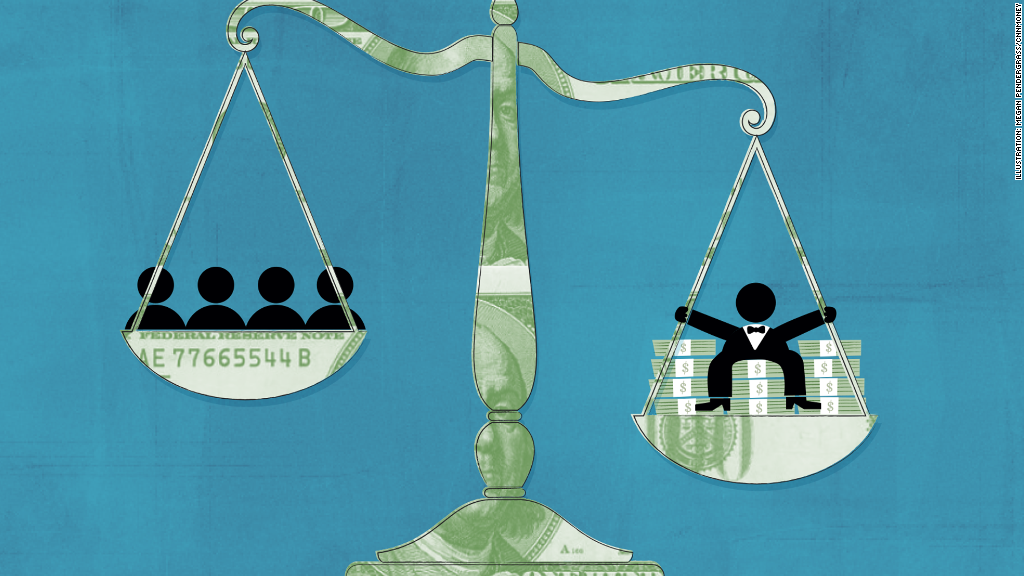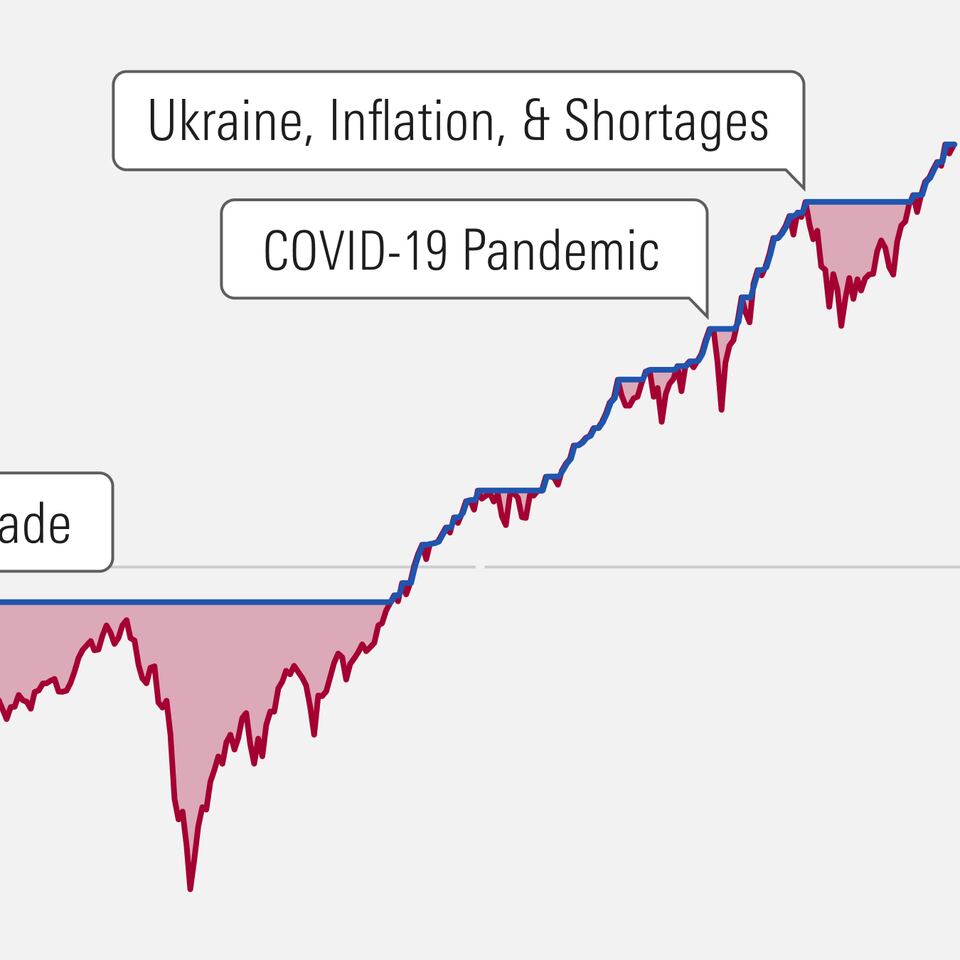Behind The Glamour: The Reality Of Income Inequality In High-Profile Relationships

Table of Contents
The Discrepancy in Earning Potential
This section explores the inherent differences in income generation between high-profile individuals (actors, musicians, athletes, etc.) and their partners, often leading to substantial financial imbalances. The sheer difference in earning potential can be staggering. One partner might earn millions annually, while the other's income may be significantly less, even if they're also working. This disparity creates a foundation for potential conflict and necessitates careful consideration of financial strategies.
-
Examples of income disparities in celebrity couples: Consider the vast income differences often seen between A-list actors and their partners who may be artists, writers, or entrepreneurs with significantly lower earning potential. The disparity can be even more pronounced when one partner is a stay-at-home parent, foregoing their own career aspirations to support their partner's high-profile career.
-
Pre-nuptial agreements and their implications: Pre-nuptial agreements are often essential in high-net-worth relationships to protect individual assets and delineate financial responsibilities. However, negotiating these agreements can be emotionally charged, requiring careful legal counsel for both parties. The discussion surrounding these agreements often highlights the underlying financial anxieties stemming from the inherent income inequality.
-
Career choices and sacrifices: Many partners in high-profile relationships make significant career sacrifices to support their partner's career. This could involve relocating, altering career paths, or foregoing personal professional growth opportunities. These sacrifices often go unnoticed by the public but significantly impact the partner's sense of self-worth and financial independence.
-
Lifestyle choices and differing earning potentials: The significant income gap often influences lifestyle choices. The higher-earning partner might be accustomed to a certain level of luxury and spending, which may not be sustainable or comfortable for the lower-earning partner. This can lead to resentment and conflict over financial decisions.
Power Dynamics and Financial Control
Income inequality can significantly skew the power dynamic within a relationship, impacting decision-making regarding finances, career choices, and even personal freedoms. Financial dominance can translate to control in other areas of the relationship.
-
Case studies illustrating financial dominance: Examining high-profile relationships that have faced public scrutiny due to financial disputes can highlight the negative effects of income inequality on power dynamics. Such examples vividly illustrate the challenges of unequal financial contributions to relationship stability.
-
Financial infidelity and its ramifications: In relationships with significant income disparities, financial infidelity, whether intentional or unintentional, can be particularly damaging. The lack of transparency and control over shared finances can erode trust and create significant conflict.
-
Unequal financial contributions and relationship stability: The partner contributing less financially may feel inadequate or resentful. The higher-earning partner may feel burdened or unappreciated. This imbalance can significantly impact relationship satisfaction and longevity.
-
Challenges faced by partners with less financial power: Partners with less financial power may feel their voice isn't heard when making financial decisions, leading to feelings of powerlessness and dependence. This can affect their self-esteem and overall happiness within the relationship.
Navigating Joint Finances and Wealth Management
Managing joint finances when facing significant income differences presents significant complexities. Careful planning and open communication are paramount.
-
Effective financial communication and transparency: Open and honest conversations about finances, including income, expenses, and savings goals, are crucial. Transparency prevents misunderstandings and fosters trust.
-
Independent financial advice: Both partners should seek independent financial advice to understand their individual financial positions and develop strategies for managing their joint finances. This ensures each partner's interests are protected.
-
Pre-nuptial and post-nuptial agreements: These legal agreements are not just about protecting assets in case of divorce; they can also clearly outline financial responsibilities and expectations within the marriage, addressing income disparities proactively.
-
Tax implications of differing income levels: Understanding the tax implications of differing income levels is essential for optimizing tax efficiency and avoiding potential financial penalties. Professional tax advice is invaluable in this context.
The Impact on Relationship Satisfaction and Longevity
Financial inequality can significantly impact the overall health and happiness of a relationship, influencing its long-term success or failure.
-
Correlation between income inequality and relationship stress: Studies show a strong correlation between income inequality and increased relationship stress, leading to conflict and dissatisfaction.
-
Financial pressure on communication and conflict resolution: Financial pressures can exacerbate existing communication problems and make conflict resolution more difficult.
-
Mitigating the negative impact of income disparity: Open communication, financial transparency, and professional financial guidance can help mitigate the negative impact of income disparity on relationship satisfaction. Couples therapy can also be beneficial.
-
Successful relationships navigating income inequality: While challenging, many successful relationships demonstrate that navigating income inequality is possible with careful planning, clear communication, and mutual respect.
Conclusion
The glittering facade of high-profile relationships often masks the underlying realities of income inequality. Understanding the impact of this inequality on power dynamics, financial decisions, and overall relationship satisfaction is crucial. While significant income differences can present unique challenges, open communication, financial transparency, and professional guidance can help couples navigate these complexities and build stronger, more equitable relationships. By acknowledging the reality of income inequality in high-profile relationships, and indeed in any relationship, we can foster a more realistic and supportive understanding of these partnerships. Learn more about managing financial disparities in your own relationship – research resources on financial planning for couples with varying incomes.

Featured Posts
-
 Cannes 2025 Emotional Response To Kristen Stewarts The Chronology Of Water
May 19, 2025
Cannes 2025 Emotional Response To Kristen Stewarts The Chronology Of Water
May 19, 2025 -
 Witnessing The Aftermath A Cnn Correspondents Report On The Deadly Tornado
May 19, 2025
Witnessing The Aftermath A Cnn Correspondents Report On The Deadly Tornado
May 19, 2025 -
 Kelowna Bear Spray Incident Victims Speak Out On Halloween Night Assault
May 19, 2025
Kelowna Bear Spray Incident Victims Speak Out On Halloween Night Assault
May 19, 2025 -
 Sea World Orlando Explore The Arctic With Expedition Odyssey
May 19, 2025
Sea World Orlando Explore The Arctic With Expedition Odyssey
May 19, 2025 -
 North Carolina Tar Heels Athletics Weekly Update March 10 16
May 19, 2025
North Carolina Tar Heels Athletics Weekly Update March 10 16
May 19, 2025
